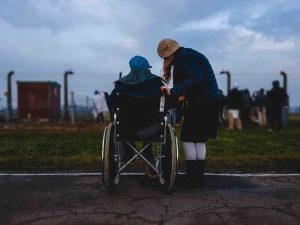 Nursing homes in San Diego and throughout Southern California should be on warning that nursing home residents and their families are not willing to deal with understaffing problems that can easily lead to nursing home neglect injuries. According to a recent article in Advance Senior Care, there are 15 nursing homes in the state of California that are now the subject of class action lawsuits “alleging that their owner systematically understaffed them to increase his profits.” While these nursing homes are facing claims for nursing home negligence risks, a recent report from California Healthline stated that approximately 1,400 nursing homes in the country will now have to report lower Medicare ratings as a result of concerns about understaffing.
Nursing homes in San Diego and throughout Southern California should be on warning that nursing home residents and their families are not willing to deal with understaffing problems that can easily lead to nursing home neglect injuries. According to a recent article in Advance Senior Care, there are 15 nursing homes in the state of California that are now the subject of class action lawsuits “alleging that their owner systematically understaffed them to increase his profits.” While these nursing homes are facing claims for nursing home negligence risks, a recent report from California Healthline stated that approximately 1,400 nursing homes in the country will now have to report lower Medicare ratings as a result of concerns about understaffing.
Southern California skilled nursing facilities are required to have specific staffing numbers in order to prevent patient injuries due to elder neglect. When facilities do not have adequate staff, patients can suffer serious and life-threatening injuries due to neglect alone. What should families in California know about the changes to Medicare ratings and how those might relate to the recent class action lawsuits in the state?
Understaffing Problems Lead to Lower Medicare Ratings for Nearly 1,400 Nursing Homes
 California Nursing Home Abuse Lawyer Blog
California Nursing Home Abuse Lawyer Blog

















